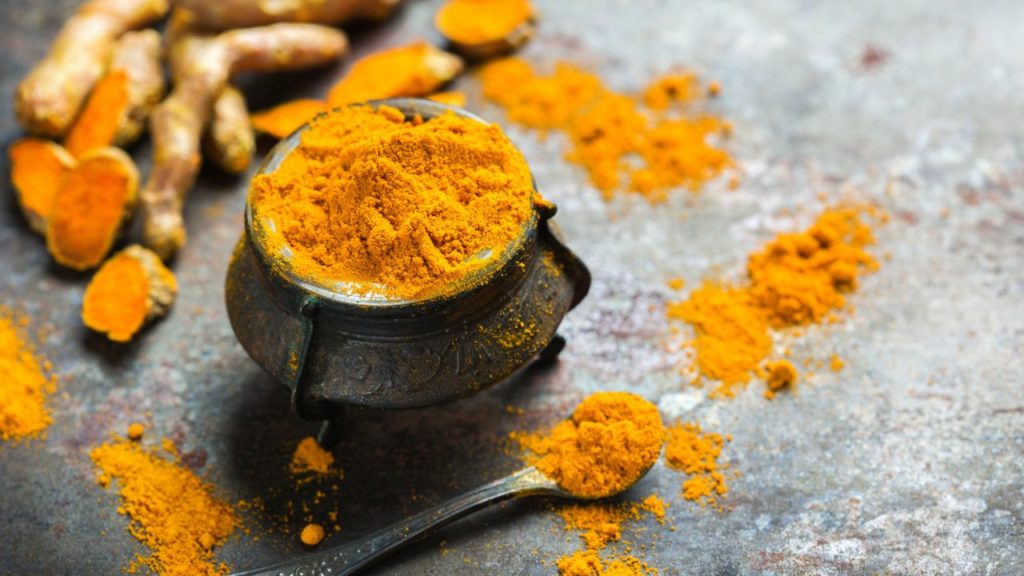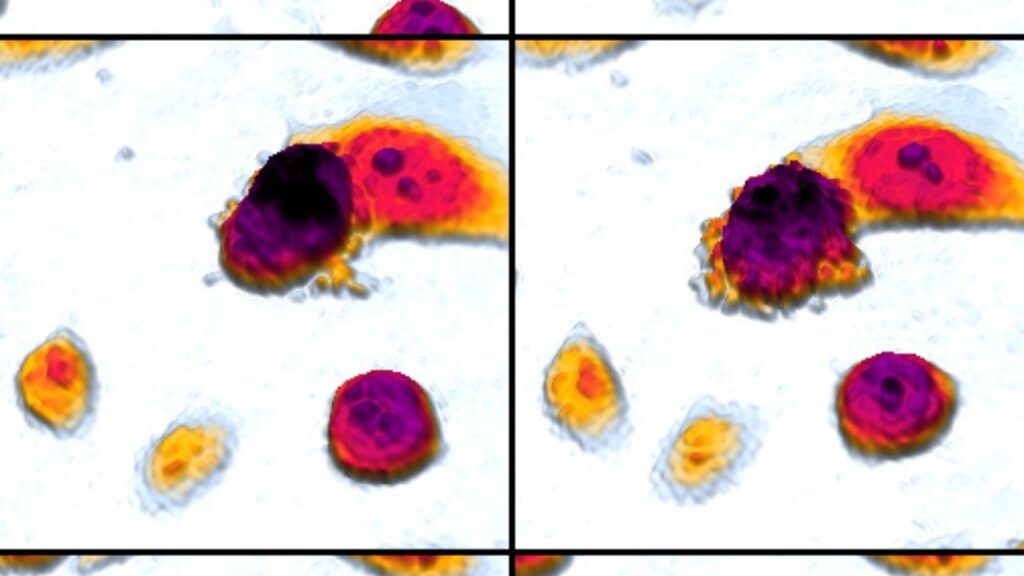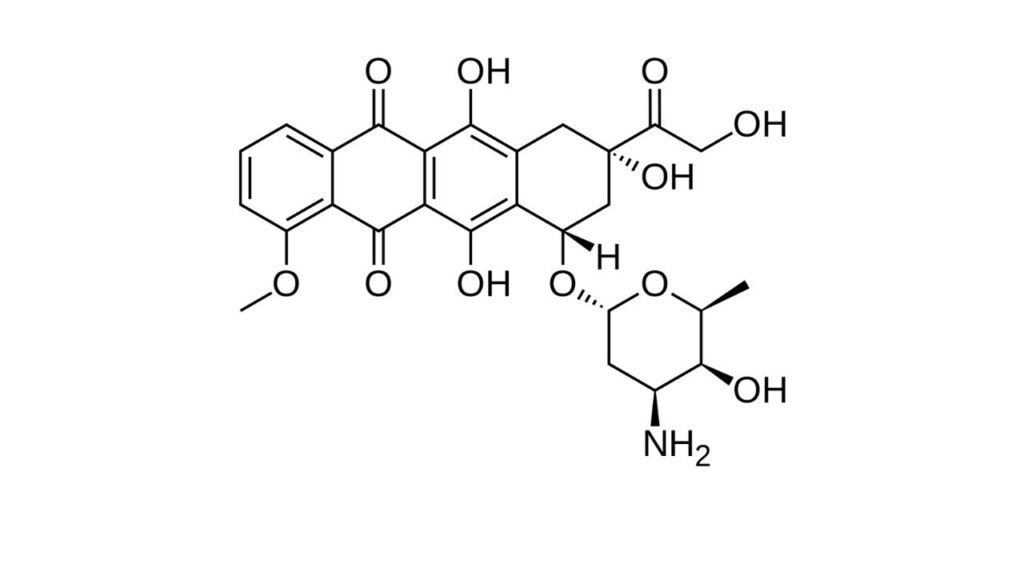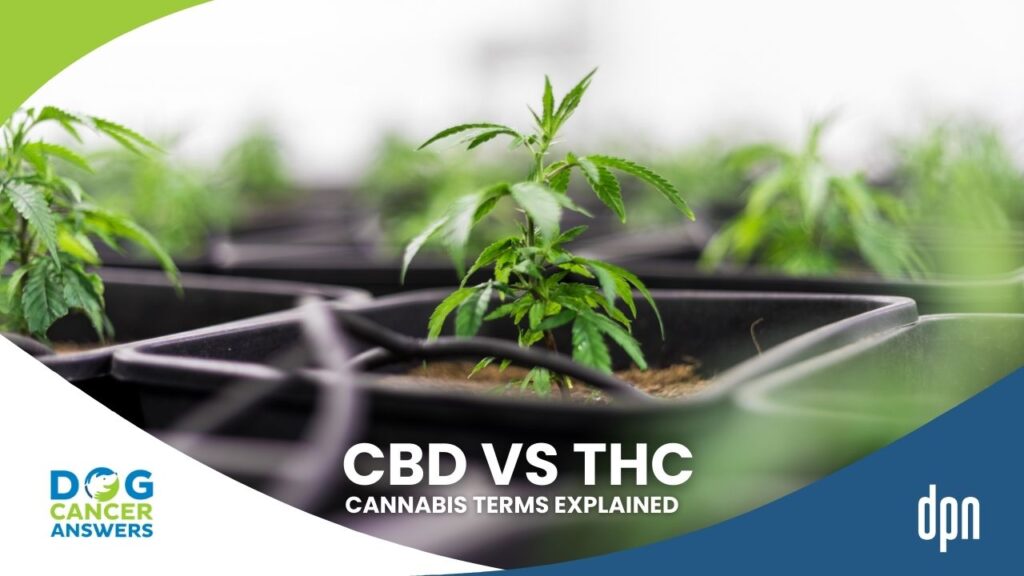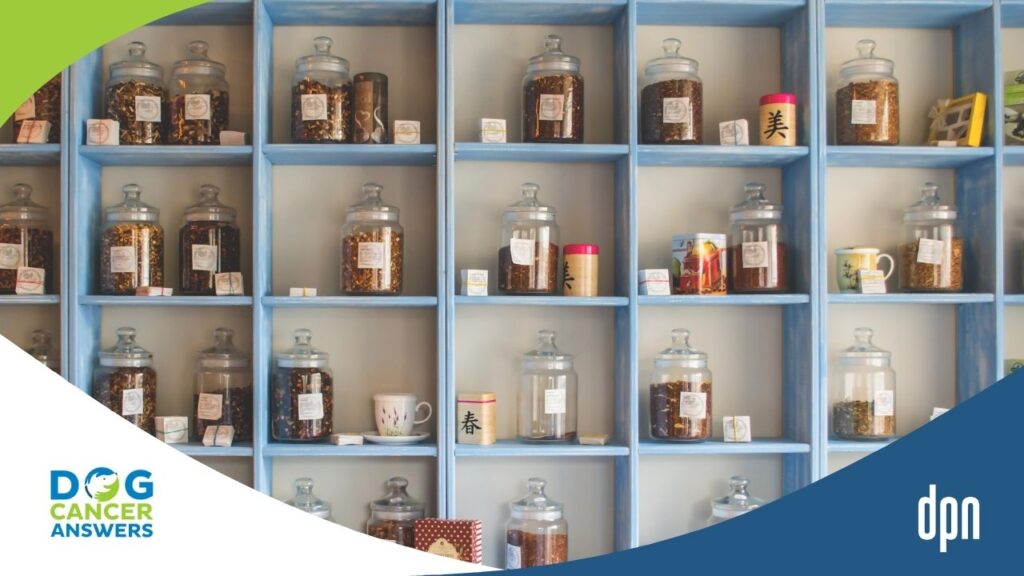EPISODE 225 | RELEASED August 7, 2023
Curcumin for Cancer in Dogs | Dr. Jessica Tartof
If you’ve researched supplements for dog cancer, you’ve come across curcumin, the active ingredient in turmeric. Does it help, and how?
SHOW NOTES
“Turmeric saved my dog” you’ll hear online. And it’s true that this dark yellow spice, used for thousands of years, has a host of benefits. But it’s really hard to get into the bloodstream, which means it has low bioavailability. Just how useful is it, really?
Dr. Jessica Tartof, an integrative veterinarian, joins us to explain why so many of the blends she recommends to her own clients include curcumin … and why feeding your dog spice off the shelf might not be as effective as you hope.
Visit us at DogCancer.com to see more articles about supplements, along with hundreds of other helpful resources for your dog.
Links Mentioned in Today’s Show:
Curcumin for Dogs article
[00:00:00] >> Dr. Jessica Tartof: A lot of these formulas, they’ve been used for thousands of years. So, we have that accumulative knowledge, which might not be an actual pharmaceutical study, but is through experience.
[00:00:15] >> Announcer: Welcome to Dog Cancer Answers, where we help you help your dog with cancer.
[00:00:22] >> Molly Jacobson: Hello friend, I’m Molly Jacobson and today on Dog Cancer Answers, we are checking out a popular supplement, curcumin.
Curcumin comes from the. turmeric plant and has been touted as a miracle cure. To help us separate fact from fiction, we’re joined by Dr. Jessica Tartof. Dr. Tartof is an integrative veterinarian who uses herbs and supplements every day, along with other therapies such as chiropractic manipulation and acupuncture.
Dr. Tartof, thank you for joining us today.
[00:00:52] >> Dr. Jessica Tartof: Thank you for having me.
[00:00:54] >> Molly Jacobson: We’re talking about curcumin. Let’s talk about what curcumin actually Is because people don’t always know what they’re naming when they, when they look it up. online. Yeah. So what is curcumin?
[00:01:09] >> Dr. Jessica Tartof: Curcumin is, uh, what’s called a phytochemical. So it’s active ingredient in the turmeric plant. The turmeric is curcuma longata or longa. And the curcumin comes from the rhizome, uh, which is also called like the root stock of it. Now there are, I believe over 300 compounds in turmeric.
[00:01:33] >> Molly Jacobson: Which is the plant.
[00:01:34] >> Dr. Jessica Tartof: Which is the plant.
[00:01:35] >> Molly Jacobson: Right.
[00:01:36] >> Dr. Jessica Tartof: Curcumin is one of those. And there is, you know, a debate of, and we don’t have the answers for this as to, well, is that one specific phytochemical, the really important part of turmeric, or as the other properties in turmeric also have a synergistic potential to increase their curcumin absorption? Are there other synergistic properties that benefit taking more so the turmeric versus the curcumin? And we, we don’t have those answers. The studies have not been done as far as I know.
[00:02:15] >> Molly Jacobson: Okay. All right. What is your favorite fun fact about curcumin?
[00:02:22] >> Dr. Jessica Tartof: I think the, probably the biggest thing is that there’s so much we still have to learn about it. There’s so much we don’t know. And for being a supplement that has been around for the length of time that it has been, we know some, but there’s a lot that’s a mystery.
[00:02:42] >> Molly Jacobson: Well, it’s a very old spice. I mean, it’s been around for a long time. It’s used as food and food coloring in all sorts of practices all over the world.
So what do we know about it given the history and then the science, the literature?
[00:02:59] >> Dr. Jessica Tartof: The biggest things is it has anti inflammatory effects, antioxidant effects, can help with arthritis, pain, inflammation. It also has some anti cancer benefits as well.
[00:03:12] >> Molly Jacobson: Okay. Like what are those anti cancer benefits?
[00:03:15] >> Dr. Jessica Tartof: So for the anti cancer benefits, it can promote cell death. It can inhibit cell growth, as well as cell divisions. It can reduce what’s called angiogenesis, which is formation of new blood vessels. So cancers need lots of blood vessels in order to grow, and that can reduce those to help kind of kill those cancer cells.
It has anti inflammatory effects that can also help with arthritis as well as just inflammation in general. It has antioxidants, which can reduce what we call oxidative stress. And it can also help protect the liver and stimulate the gallbladder.
[00:03:58] >> Molly Jacobson: Are there specific cancers you use it for?
[00:04:01] >> Dr. Jessica Tartof: There’s several that you can use it for. The large B-cell lymphoma is, you know, one that it’s gaining more traction in. There is usually like mast cell, ovarian cancer, bladder cancer, dogs that are going through chemotherapy with doxorubicin. There’s some potential help to help preventing some of the cardiotoxicity in those dogs, but it’s not just going, the routine treatment is going above and beyond the chemotherapy cycles if they’re getting high levels.
[00:04:38] >> Molly Jacobson: Say more about that. So if they’re getting high levels of, of chemotherapy, it can help?
[00:04:43] >> Dr. Jessica Tartof: Of doxorubicin.
[00:04:44] >> Molly Jacobson: Of doxorubicin. Okay.
[00:04:46] >> Dr. Jessica Tartof: It can help some of the cardiotoxicity.
[00:04:49] >> Molly Jacobson: Okay. All right. So it protects the heart.
[00:04:52] >> Dr. Jessica Tartof: Correct. There’s no more studies that are needed. But there looks like there’s some potential protection of the heart.
[00:04:59] >> Molly Jacobson: That’s wonderful.
[00:05:00] >> Dr. Jessica Tartof: So there’s a myriad of effects that it does.
[00:05:04] >> Molly Jacobson: It’s like a Swiss Army knife.
[00:05:06] >> Dr. Jessica Tartof: Yes.
[00:05:07] >> Molly Jacobson: So because of that, I think it’s gotten this reputation as like a miracle cure for cancer, especially. Is that how you think of it?
[00:05:17] >> Dr. Jessica Tartof: I don’t. I do think it’s helpful. There’s certain situations I use it more so. But if it was a miracle cure, we wouldn’t need other things. And the fact that there are so many options, there’s so many supplements, it’s because we haven’t found the one thing that cures all.
[00:05:37] >> Molly Jacobson: Okay. That makes sense. So it’s helpful, but it’s not necessarily potent enough, or even though it does so many things, broadly active enough to actually cure cancer on its own.
[00:05:50] >> Dr. Jessica Tartof: Correct. And a part of that is the absorption. So little of it is absorbed orally. And that’s one of the hardest things with curcumin.
[00:06:03] >> Molly Jacobson: So when you say it’s not absorbed easily, are you talking about bioavailability?
[00:06:09] >> Dr. Jessica Tartof: Correct.
[00:06:10] >> Molly Jacobson: Okay. So can you explain a little bit about what that means, and how it works?
[00:06:15] >> Dr. Jessica Tartof: So with bioavailability, it means that when you take something orally, it goes through your digestive tract and is absorbed with your intestinal system and goes into your bloodstream. And with curcumin, less than 1% of what’s taken orally is found in the bloodstream.
[00:06:34] >> Molly Jacobson: Wow. So that means that the body is using up all of that curcumin along the way. It doesn’t actually get to circulate throughout the whole body.
[00:06:44] >> Dr. Jessica Tartof: It doesn’t go in the bloodstream to circulate.
[00:06:46] >> Molly Jacobson: Okay. So that would mean that unless you’re, the tumor was sort of in the digestive system and it was being directly applied to it through ingestion, you’re not going to necessarily see it in the bloodstream. So what do we do about that? Like, how do we, can we increase bioavailability?
[00:07:05] >> Dr. Jessica Tartof: So there is intravenous curcumin that’s been done in some studies, more so in human medicine than it is in available for dogs and cats.
[00:07:16] >> Molly Jacobson: Okay.
[00:07:17] >> Dr. Jessica Tartof: If you give something IV, so intravenously, you bypass the digestive tract. And if you do that. then you absorb a lot of it because obviously it’s going right into the bloodstream. It’s bypassing the GI system.
[00:07:32] >> Molly Jacobson: Okay. And once it’s in the bloodstream, it can go anywhere because the blood moves very quickly around the body, right? It’s, like blood circulates very, very quickly.
[00:07:42] >> Dr. Jessica Tartof: Yes, and then it can get to where it needs to go or it can go everywhere in the body. But if you are only observing a small amount, it does go circulating the body. But the concentration of the curcumin in the blood orally versus intravenously is vastly different. And a lot of the studies are done on the intravenous, not so much the oral.
[00:08:05] >> Molly Jacobson: Okay. So that’s important that sometimes when people are quoting studies, those studies might have been done on intravenous curcumin, in which case they were getting a huge concentration, much more than you would get by eating curry.
[00:08:21] >> Dr. Jessica Tartof: Yes. Yes.
[00:08:22] >> Molly Jacobson: In your meal. Okay.
[00:08:24] >> Dr. Jessica Tartof: And the intravenous has to be done through a veterinarian. It’s not like you can’t just mix up the oral and put that in the vein. It is completely different.
[00:08:35] >> Molly Jacobson: Good point. Yeah, this is not something we can do at home. This would have to be something that you get your veterinarian to administer. Now, are there veterinarians who are doing IV curcumin?
[00:08:47] >> Dr. Jessica Tartof: I don’t know of any. I think it’s mostly in studies. I don’t know any, at least in my area that are doing it.
[00:08:53] >> Molly Jacobson: Okay. What area are you in?
[00:08:55] >> Dr. Jessica Tartof: I am outside Chicago.
[00:08:58] >> Molly Jacobson: Okay. That’s right. Yeah. So, yeah, I’ve never heard of intravenous curcumin in this context, in the context of a veterinary hospital. So that sounds like something that we don’t have available to us as dog lovers. What about this golden paste that people make? And what about curcumin supplements?
[00:09:18] >> Dr. Jessica Tartof: So with golden paste, the idea is that you take the curcumin, you add in to help with the viability, the absorption, the coconut oil, as well as black pepper. The theory is you combine it all, you heat it up and you’ll be able to absorb it better. The hard thing is, is that there’s no studies to show that that benefits the absorption.
[00:09:46] >> Molly Jacobson: Okay.
[00:09:47] >> Dr. Jessica Tartof: And concentration can sometimes be hard to know of how much you’re actually giving your pet.
[00:09:54] >> Molly Jacobson: Have you used the golden paste with your clients?
[00:09:57] >> Dr. Jessica Tartof: I typically will use, especially in cases that I really want curcumin or tumor use, I will use a product because I know how much of that product is in either that capsule or tablet or powder, and I know how to dose that to the dose that I want, as well as I know that that product is a really good quality product because your quality, especially for curcumin, is going to really vary.
[00:10:34] >> Molly Jacobson: So, when you’re making a golden paste at home, you may or may not be making a good golden paste. It might be less suitable or effective than a supplement that has been standardized.
[00:10:47] >> Dr. Jessica Tartof: Correct.
[00:10:48] >> Molly Jacobson: Okay. So we’re once again and not, well, we’re not sure about this natural substance. Can you talk a little bit about why that so often happens when we talk about supplements? Why we don’t, quote, know?.
[00:11:04] >> Dr. Jessica Tartof: I think it’s several different reasons. One is the money to study some of these. things are just not there. In order for to have the money to do all the research, there has to be a certain profit margin. If that funding isn’t there, it’s hard to do those studies. And some of those are like retrospective studies or small studies.
The other thing is that it’s, it’s hard when you have other compounds in all interacting. It’s sometimes hard to know exactly what is going on.
[00:11:38] >> Molly Jacobson: You can’t remove enough variables to really understand how all of the pieces are working together. You need to eliminate some of those. So as an integrative vet, how do you feel about folks who say supplements don’t work because we don’t have the studies there? So we don’t have proof that they work. Where do you come down on that? How do you make those judgments as a clinician about what will help a dog or not help a dog?
[00:12:05] >> Dr. Jessica Tartof: We might not have the actual literature studies, although that’s changed overseas. There’s a lot more studies on certain things, especially alternative medicine that we have in the United States.
The other part is a lot of these formulas. They’ve been used for thousands of years. So we have that accumulative knowledge, which might not be an actual pharmaceutical study, but is through experience.
[00:12:34] >> Molly Jacobson: And that is a type of evidence.
[00:12:36] >> Dr. Jessica Tartof: Correct.
[00:12:37] >> Molly Jacobson: Right.
[00:12:37] >> Dr. Jessica Tartof: Evidence, uh, medicine.
[00:12:39] >> Molly Jacobson: Yeah. I mean, if I say to you that the sky is blue. In my experience and in your experience, the sky has been blue for our entire lifetimes. And we have thousands of years of writing where people describe the sky as blue. So do we have to prove it?
[00:12:57] >> Dr. Jessica Tartof: Right.
[00:12:58] >> Molly Jacobson: Right? I mean, not everything can be seen like the sky, right? Especially things in medicine, which are happening on a cellular level. So it’s not quite a fair comparison, but it seems to me like there are things that if, historically, things tend to be helped by a certain substance, so you keep using it, that is a form of evidence, even if it’s not done in a lab.
[00:13:21] >> Dr. Jessica Tartof: Correct.
[00:13:22] >> Molly Jacobson: Okay. So you’re in agreement there.
[00:13:24] >> Dr. Jessica Tartof: Yes. Yes. And we also, as integrative veterinarians, we share knowledge. We want to help more pets. We want to share the knowledge that we’ve had. So we’ve come a long ways, even in the last five, ten years, in terms of tweaking formulas, having new formulas, other supplements that really shown some promise as well.
[00:13:48] >> Molly Jacobson: That sounds like a good place to take a break and listen to some of our sponsors. And then we’ll be right back with Dr. Jessica Tartof.
And we’re back with Dr. Jessica Tartof. So in terms of curcumin, what’s your dosing strategy for dogs?
[00:14:09] >> Dr. Jessica Tartof: It can depend a little bit on the patient and what I’m using it for.
[00:14:14] >> Molly Jacobson: Okay.
[00:14:15] >> Dr. Jessica Tartof: So generally it’s about 15 to 20 milligrams per pound per day. That is generally split into two doses, like a morning and evening dose. But I would check, you know, if you are getting something on your own, I would check the package instructions. If it’s a canine, a dog product, and that should have dosage instructions that are safe in there.
[00:14:42] >> Molly Jacobson: Okay, so if I had a one pound dog, which nobody does. And if they do, they should not give curcumin because it’s probably a puppy. But if I had a one pound dog, I might give 20 milligrams a day split into two 10 milligram doses.
[00:14:58] >> Dr. Jessica Tartof: Correct.
[00:14:59] >> Molly Jacobson: Okay. Do you like giving it with food or without food or?
[00:15:03] >> Dr. Jessica Tartof: I generally have people give it with food just to help in case there’s any stomach upset.
[00:15:09] >> Molly Jacobson: Can it cause stomach upset?
[00:15:11] >> Dr. Jessica Tartof: It’s rare, but it can happen. Anything that you give differently will sometimes cause some stomach upset.
[00:15:17] >> Molly Jacobson: Okay.
[00:15:17] >> Dr. Jessica Tartof: It depends on how sensitive their stomach and their GI system are.
[00:15:22] >> Molly Jacobson: Okay. I imagine with the anti inflammatory effects that it might be useful for calming the tummy. I know that I have friends who would say. Like, have a little curry in your milk to calm it down, who are from, they’re Bengali. Is that something that you have seen in your practice?
[00:15:42] >> Dr. Jessica Tartof: I typically will use other things if they have stomach upset.
[00:15:46] >> Molly Jacobson: Uh huh.
[00:15:46] >> Dr. Jessica Tartof: Historically, it has been used for stomach irritation as well as other issues, but if they do have stomach upset, I generally will use something else.
[00:15:59] >> Molly Jacobson: Okay, because it might be a little too harsh.
[00:16:02] >> Dr. Jessica Tartof: Yes, it’s a warming, it’s considered a warming herb, although it technically has warming and cooling properties. So I will be cautious, it’s not that I won’t use it, but I’ll be cautious in a dog that is not, not temperature-wise hot, but categorically I consider it like a hot dog. I’ll be a little bit cautious.
[00:16:24] >> Molly Jacobson: What would a hot dog, what’s a hot dog? That’s a whole other show, I think. Um, but when you say a dog that’s hot, not temperature-wise, what do you mean by that?
[00:16:37] >> Dr. Jessica Tartof: Um, a dog who, they’re panting a lot. They might be drinking a lot of water. They’re always going in the cool room of the house or tile floor. They generally will love the colder weather, the ice, snow, lick ice cubes, those are typically the signs.
[00:16:56] >> Molly Jacobson: Okay. All right. Very good. So they’re not running a fever, but they sort of run hot.
[00:17:01] >> Dr. Jessica Tartof: Correct.
[00:17:02] >> Molly Jacobson: Okay. Very good. Are there any other side effects to think about when it comes to curcumin?
[00:17:09] >> Dr. Jessica Tartof: The biggest thing is, is that if there is an obstruction in the bile duct, that it is what consider contraindication and it should be only used very cautiously or not used at all because one of the facts of curcumin is to contract the gallbladder. And so if they have an obstruction, that can be quite dangerous. The other issue is if they are on any blood thinners that can propagate those effects and cause issues as well.
[00:17:47] >> Molly Jacobson: Okay. So if they’re on blood thinners, then curcumin can enhance the blood thinning effect. Is that what you mean by that?
[00:17:55] >> Dr. Jessica Tartof: Correct.
[00:17:56] >> Molly Jacobson: Okay. Anything else to think about or watch out for?
[00:18:00] >> Dr. Jessica Tartof: It’s rare, but you can have, it’s more so in people, a dermatitis. So, uh, skin reaction.
[00:18:07] >> Molly Jacobson: When the dog takes it internally?
[00:18:09] >> Dr. Jessica Tartof: It can be internal as well as topical.
[00:18:12] >> Molly Jacobson: Oh, I see. Okay.
[00:18:13] >> Dr. Jessica Tartof: Especially if it’s a powder. It kind of goes everywhere.
[00:18:16] >> Molly Jacobson: Yeah. So if the dog seems to like have kind of an inflamed mouth afterwards or.
[00:18:21] >> Dr. Jessica Tartof: Or itching.
[00:18:22] >> Molly Jacobson: Or itching. Okay.
[00:18:23] >> Dr. Jessica Tartof: Yeah. And as I said, it’s very rare, but.
[00:18:26] >> Molly Jacobson: It’s rare.
[00:18:26] >> Dr. Jessica Tartof: Yes.
[00:18:28] >> Molly Jacobson: Okay. Can you give too much curcumin? I know a lot of people think if a little’s good, then more is probably better. And oh my gosh, it’s not bioavailable so I want to give more curcumin so that my dog gets more curcumin. Is that a good strategy?
[00:18:45] >> Dr. Jessica Tartof: The hard thing is, is they’re going to absorb what they are going to absorb and giving more is not necessarily better.
[00:18:53] >> Molly Jacobson: Okay.
[00:18:53] >> Dr. Jessica Tartof: So giving, let’s say 10 times as much is not going to mean that they absorb 10 times as much.
[00:18:59] >> Molly Jacobson: Oh. Okay.
[00:19:01] >> Dr. Jessica Tartof: There’s been actually some studies done where they were given extremely high doses and they didn’t see any side effects in those mice. However, they didn’t, as far as I know, test their absorption. What we know with absorption is absorption is still an issue. So is it going to necessarily be detrimental? They might get some GI upset from it. But it’s, it’s not going to necessarily help.
[00:19:32] >> Molly Jacobson: So, at best, it’s not going to help, and you’re just throwing curcumin away, in effect. And at worst, it could give them some GI upset.
[00:19:43] >> Dr. Jessica Tartof: Correct.
[00:19:44] >> Molly Jacobson: Okay. So, someone who is listening and thinking, Oh my God, I’ve been giving way more than that, doesn’t have to feel guilty. They probably haven’t hurt their dog, but they, probably don’t need to keep doing that.
[00:19:58] >> Dr. Jessica Tartof: Correct.
[00:19:59] >> Molly Jacobson: With that 15 to 20 milligrams a day, split into two doses given with food.
[00:20:04] >> Dr. Jessica Tartof: Yes.
[00:20:04] >> Molly Jacobson: Okay. All right. That’s very helpful. Is there anything else that we need to know about curcumin? If you had your best advice for people looking at curcumin?
[00:20:15] >> Dr. Jessica Tartof: I like to use products when they have more than one thing. Sometimes it’s, you know, I’m using something specifically for one condition, but if I can do more than one thing that is my goal. So if they have, let’s say arthritis and they have cancer, those are usually where my light bulb goes off as, Oh, I think this might really help.
[00:20:35] >> Molly Jacobson: Do you use it in conjunction with other supplements, usually? Do you think of it as an add on or do you think of it as like the center of your strategy when it comes to cancer?
[00:20:46] >> Dr. Jessica Tartof: It is an add on. It is not the center. My approach is, I want to use the things because there is, there’s over a hundred, you know, sometimes products that you can put a dog on, a hundred might be high, but there are a lot of products that are available and you can put your pet on if they have cancer. And part of my job is to narrow that down to the ones that I think are going to give that dog the best advantage for their particular cancer and other issues that they have going on.
The other thing is that it stains. If you have a light colored dog, if they have a dog that’s mostly white on the face or the paws, it can stain. So I do warn people. It’s one that your dog might not be white anymore, or if they vomit or have diarrhea, it can stain carpeting, it can stain sofas. So that’s one of the biggest things to know.
[00:21:52] >> Molly Jacobson: That’s really, really helpful. And also, does their poop ever turn a little bit yellow when they’re on curcumin?
[00:21:58] >> Dr. Jessica Tartof: It can, especially if you’re giving high doses.
[00:22:01] >> Molly Jacobson: Okay. So that might be a sign that maybe your dog’s getting too much curcumin. They’re not processing enough, maybe?
[00:22:08] >> Dr. Jessica Tartof: Potentially.
[00:22:09] >> Molly Jacobson: Okay. Well, thank you so much for talking to us today, Dr. Jessica Tartof. I so appreciate you being here and your calm, integrative approach to veterinary medicine.
[00:22:21] >> Dr. Jessica Tartof: Well, thank you for having me.
[00:22:24] >> Molly Jacobson: And thank you, friend, for listening today. It’s such a pleasure to talk to Dr. Jessica Tartof about curcumin, which is a very, very interesting phytochemical from the turmeric plant. I’m really fascinated by the idea that curcumin as a standalone might not be as helpful as it is when used in a blend, perhaps that’s why Chinese formulas have included it for so many years. And perhaps that’s why it is in so many supplements that you see on the shelves.
Of course, the important thing to remember is that more is not more. So follow those dosing instructions carefully. If you have been giving your dog more curcumin than is recommended, that might not be a hurtful thing or a harmful thing, but you might just be wasting money essentially and overdosing your dog with no added benefit.
It’s use in arthritis and other conditions that need an anti inflammatory is really nice, but there are some caveats and of course for cancer, it could very easily be part of your supplement strategy that you can go over with your veterinarian for your dog’s specific cancer case.
To learn more, visit the show notes and follow the links to our website, dogcancer. com, where you’ll find more about curcumin and many other supplements. And we’ll see you again soon on a future episode of Dog Cancer Answers. Subscribe wherever you get your podcasts.
I’m Molly Jacobson, and for all of us here at Dog Podcast Network, I’m wishing you and your dog a very warm, Aloha.
[00:24:03] >> Announcer: Thank you for listening to Dog Cancer Answers. If you’d like to connect, please visit our website at dogcancer.com, or call our listener line at (808) 868-3200. And here’s a friendly reminder that you probably already know, this podcast is provided for informational and educational purposes only. It’s not meant to take the place of the advice you receive from your dog’s veterinarian.
Only veterinarians who examine your dog can give you veterinary advice or diagnose your dog’s medical condition. Your reliance on the information you hear on this podcast is solely at your own risk. If your dog has a specific health problem, contact your veterinarian. Also, please keep in mind that veterinary information can change rapidly, therefore, some information may be out of date.
Dog Cancer Answers is a presentation of Maui Media in association with Dog Podcast Network.


